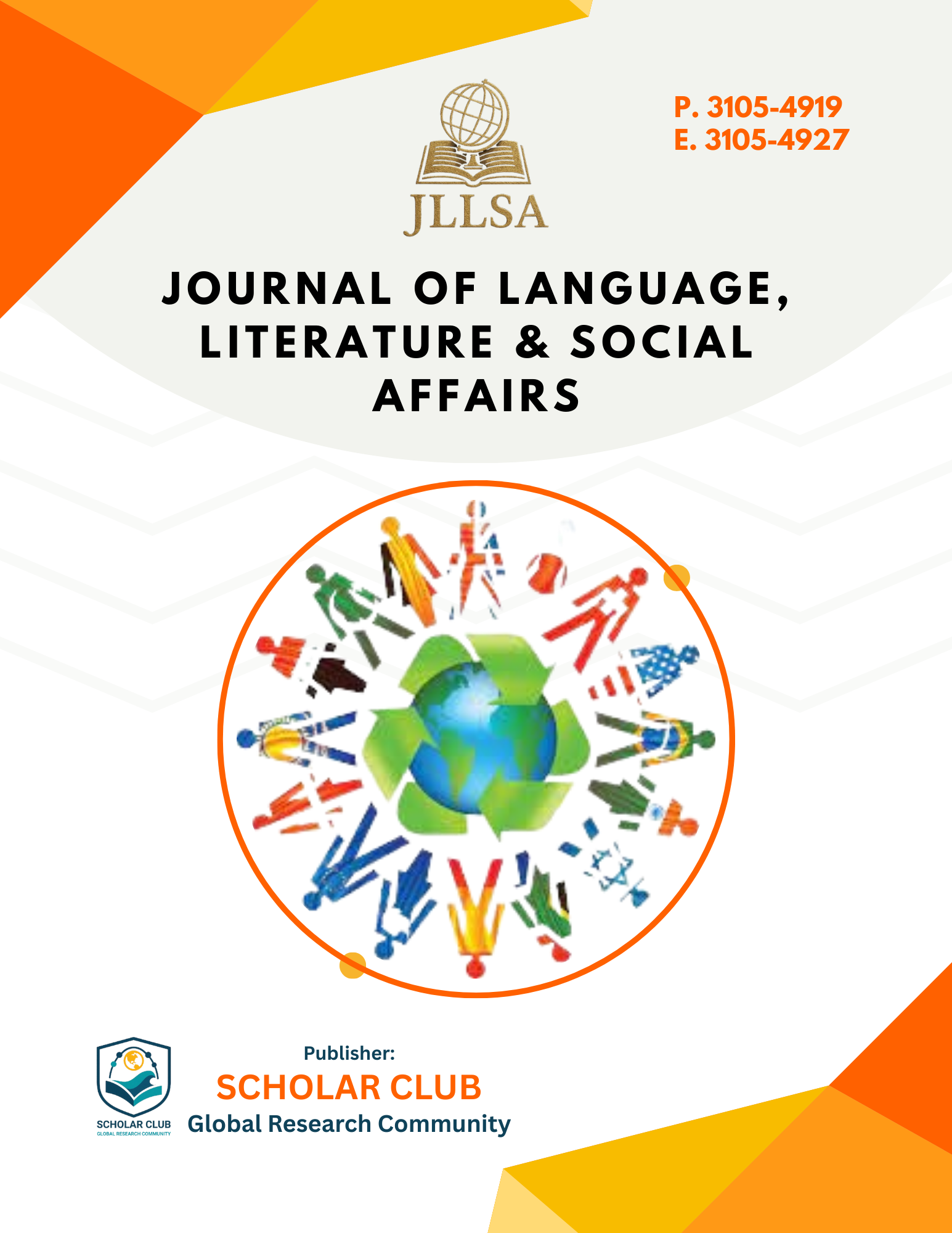Ambiguity, Identity, and Belonging: A Critical Study of Changez in Mohsin Hamid’s The Reluctant Fundamentalist
DOI:
https://doi.org/10.63056/jllsa.1.3.2025.65Keywords:
ambiguity, postcolonial identity, hybridity, mimicry, belonging, globalization, 9/11Abstract
The study explores the theme of ambiguity, identity, and belonging in The Reluctant Fundamentalist (2007) by Mohsin Hamid through the postcolonial theory. The research is dedicated to the main character, Changez, a young Pakistani male who has to deal with transnational borders between the United States and Pakistan after 9/11. Utilizing qualitative and analytical approaches, the study brings to focus the process of narrative ambiguity, hybridity, mimicry and personal disillusionments as evidences of the negotiating complexity of postcolonial identity. As Changez goes through his life, we can see the psychological, cultural, and emotional price of trying to assimilate into an orientalist-planned society in which everyone is suspicious, orientalist, and racialized. Relied on the theoretical backgrounds of Homi K. Bhabha, Edward Said, Frantz Fanon and Gayatri Spivak, the paper shows that ambiguity is a literary device as well as an existential experience of postcolonial subjects. Finally, the novel shows that identity and belonging are changeable, disputed, and continuously demolished in the framework of globalization and geopolitical conflict.
Downloads
Published
How to Cite
Issue
Section
License
Copyright (c) 2025 Shafqat Ullah, Ghanwa Asad, Abdur Rauf

This work is licensed under a Creative Commons Attribution 4.0 International License.







